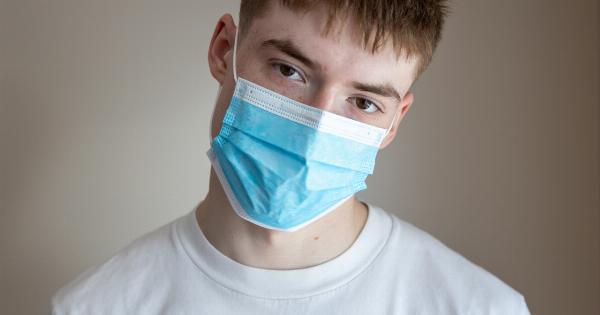Ebola, a severe and often deadly illness caused by the Ebola virus, has been a major public health concern in recent years. The virus is known for its high mortality rate and devastating impact on affected communities.
While many people who contract Ebola do not survive, there is growing evidence suggesting that even those who do survive may face long-term health complications and an increased risk of premature death.
The long-term health effects of Ebola
Surviving Ebola is often described as a miracle, given the high mortality rate associated with the disease. However, researchers are now beginning to understand that surviving Ebola does not necessarily mean escaping long-term health consequences.
Studies have found that Ebola survivors can experience a range of physical and psychological symptoms, even years after their initial infection.
One of the most common long-term health effects experienced by Ebola survivors is the persistence of various physical ailments. These include joint and muscle pain, chronic fatigue, and headaches.
Additionally, survivors may also face vision and hearing problems, as well as difficulties with memory and concentration. These physical symptoms can significantly impact survivors’ quality of life and make it challenging for them to resume their normal activities.
Furthermore, survivors of Ebola are also at an increased risk of developing other serious health conditions. Research has shown that survivors are more likely to experience kidney and liver problems, as well as cardiovascular diseases.
These complications can have a profound impact on survivors’ overall health and increase their risk of premature death.
Psychological impact on Ebola survivors
The impact of Ebola extends beyond physical health issues, as survivors also face a significant psychological burden.
The fear and trauma associated with experiencing a life-threatening illness, witnessing the death of loved ones, and being isolated from their communities can lead to long-lasting mental health problems.
Post-traumatic stress disorder (PTSD) is a common mental health condition experienced by Ebola survivors. They may have flashbacks, nightmares, or severe anxiety, triggered by reminders of their traumatic experience.
Depression and anxiety disorders are also prevalent among survivors, and they often struggle with social stigmatization and discrimination due to the perceived risk of transmitting the virus.
The challenges of healthcare for Ebola survivors
Providing healthcare for Ebola survivors is a complex task, as it requires addressing both their physical and mental health needs.
The limited resources available in affected regions further compound the challenges of delivering comprehensive care to this vulnerable population. Healthcare facilities in these areas may lack the necessary infrastructure, medical equipment, and trained personnel to effectively manage the long-term healthcare needs of Ebola survivors.
Additionally, the lack of awareness and understanding about the long-term health effects of Ebola among healthcare providers can lead to inadequate healthcare for survivors.
Misdiagnosis or the failure to attribute symptoms to their previous Ebola infection can result in delayed treatment, exacerbating their physical and psychological health conditions.
There is an urgent need for increased investment in healthcare systems within affected regions to ensure that Ebola survivors receive the necessary support.
This includes the establishment of specialized clinics and trained healthcare professionals who can address the varying needs of survivor populations. Mental health services, including counseling and therapy, should also be readily available to help survivors cope with the psychological aftermath of their experience.
Promoting awareness and reducing stigma
One of the key challenges faced by Ebola survivors is the stigma associated with the disease.
Ignorance and fear often lead to discrimination and social exclusion, exacerbating the already significant challenges faced by survivors in their path to recovery. It is crucial to promote awareness and education to dispel myths and misconceptions surrounding Ebola.
Efforts should focus on community engagement and communication campaigns to foster support and understanding for Ebola survivors. This includes actively involving survivors in awareness programs and sharing their stories to humanize their experiences.
By personalizing the impact of Ebola, society can develop empathy and provide the necessary support to survivors.
Addressing stigma also requires engaging religious and community leaders who can play a pivotal role in challenging negative attitudes and promoting inclusivity.
It is important to emphasize that Ebola survivors are not a threat and that they deserve compassion and equal opportunities to rebuild their lives.
Research and surveillance for improved outcomes
Given the increasing recognition of the long-term health effects faced by Ebola survivors, it is vital to invest in further research and surveillance.
A better understanding of the health complications and mortality risks associated with surviving Ebola is crucial for developing evidence-based interventions and providing appropriate healthcare.
Research should focus on identifying effective treatment strategies for managing the physical symptoms experienced by survivors and improving their overall quality of life.
Longitudinal studies can provide valuable insights into the long-term health outcomes of survivors and help identify risk factors associated with premature death.
Surveillance systems must be implemented to monitor the health status of Ebola survivors and track any emerging complications or trends.
Adequate data collection and analysis can inform public health policies and interventions, ultimately improving the outcomes for survivors and reducing their risk of premature death.
Conclusion
Ebola survivors face numerous challenges that extend far beyond their initial encounter with the virus.
The physical and psychological health effects of Ebola can persist for years, significantly impacting survivors’ quality of life and increasing their risk of premature death. Providing comprehensive healthcare, promoting awareness, and reducing stigma are essential components of supporting this vulnerable population.
Investing in research and surveillance is imperative for understanding the long-term consequences of Ebola infection and identifying effective interventions.
By prioritizing the needs of survivors and fostering a supportive environment, we can help Ebola survivors overcome the physical and psychological burdens they face and decrease their risk of premature death.





























